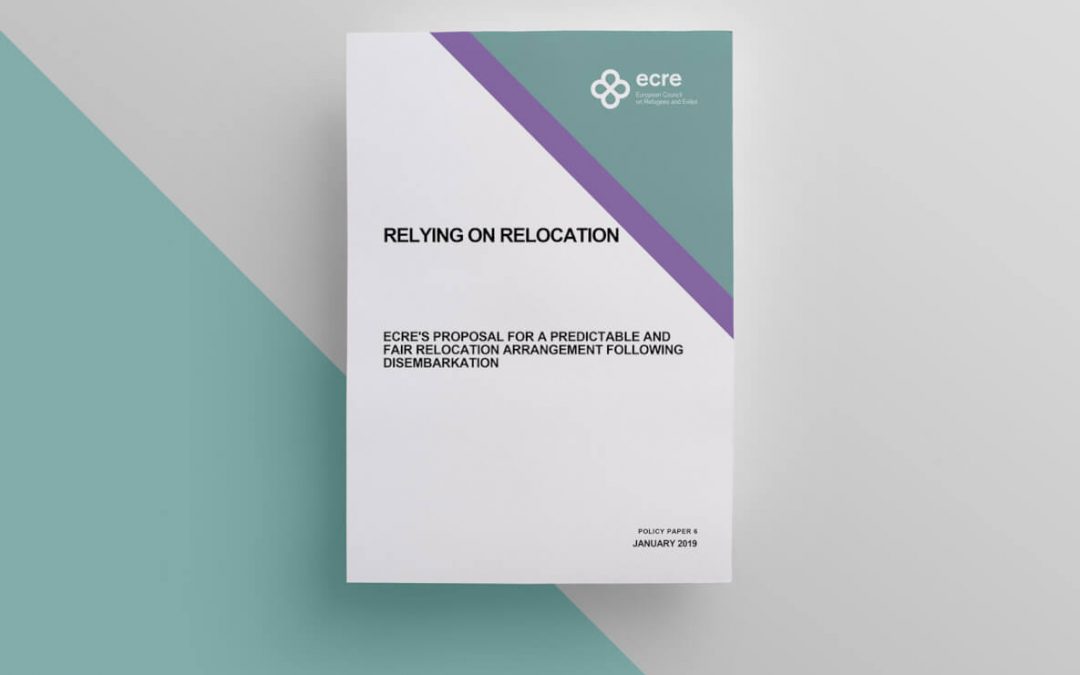In its latest Policy Paper, ECRE proposes a mechanism for relocation following disembarkation to end the current “ship by ship” approach to relocation of persons rescued in the Mediterranean.
The arrangements followed by European countries since the summer of 2018 are legally and politically unsustainable as they exacerbate suffering by leaving people at sea for prolonged periods, allow leaders to exploit search and rescue incidents for domestic political purposes, entail bureaucracy and costs for administrations, and cause reputational damage to the EU by undermining relations with third countries. The manner in which individuals are currently received and distributed under ad hoc arrangements on relocation also raises questions of compliance with the CEAS standards, with people being detained and forbidden from applying for asylum in countries of arrival, and receiving countries exercising undue discretion when selecting those who will be relocate.
ECRE recommends a relocation mechanism for asylum seekers disembarked in EU ports based on fair and effective implementation of rules set out in the existing EU rules, without adding new obligations for Member States. The main elements of the mechanism are as follows:
1) While countries should be able to choose whether or not to opt into the relocation mechanism, the states participating in the mechanism should be defined from the outset and should not be negotiated on a “ship by ship” basis. The arrangement should apply to disembarkations following search and rescue and other forms of sea arrivals in all participating coastal EU Member States to guarantee fairness and to support the efforts of all countries receiving disembarked people. All countries will be required to examine at least some asylum applications of disembarked persons.
2) Relocation should apply to persons who have lodged an asylum application in the Member State of disembarkation and for whom that Member State would otherwise be responsible under the Dublin Regulation. This provides necessary safeguards as it ensures that individuals who wish to apply for asylum are promptly granted access to an asylum procedure, undergo vulnerability and best interests assessments, and benefit from the right to remain on the territory and the right to reception conditions such as accommodation and health care. Applicants with family links in other countries will be transferred thereto under the mandatory provisions of the Dublin Regulation.
3) After defining the pool of asylum seekers eligible for relocation, the Member State of disembarkation and the European Asylum Support Office will calculate the respective numbers of persons to be transferred to each participating country, on the basis of a pre-defined reference share. The country of disembarkation will then submit “take charge” requests pursuant to the “humanitarian clause” of the Dublin Regulation. In accordance with that provision, “take charge” requests require the written consent of the individuals concerned. Transfers will therefore not be forced; an applicant refuse to be transferred to a participating country will continue the asylum procedure in the Member State of disembarkation.
For further information:
- ECRE, Editorial: A Contingency Plan for Disembarkation and Relocation, 11 January 2019.
This article appeared in the ECRE Weekly Bulletin . You can subscribe to the Weekly Bulletin here.

